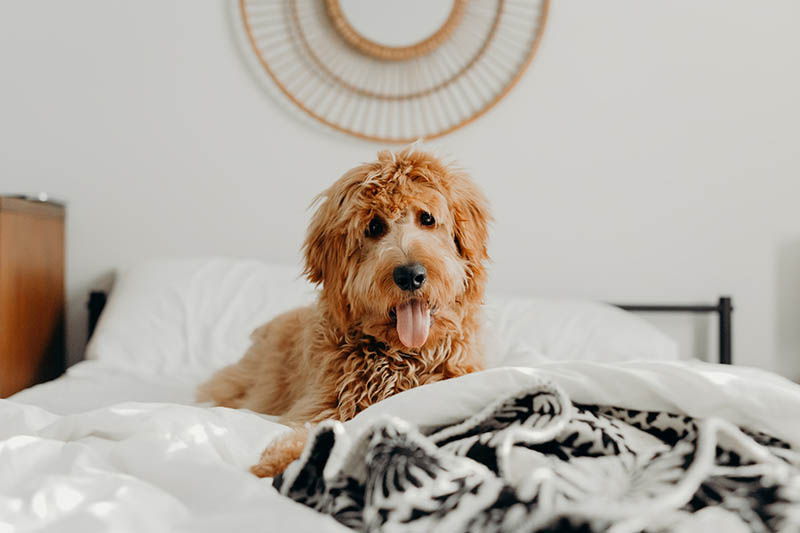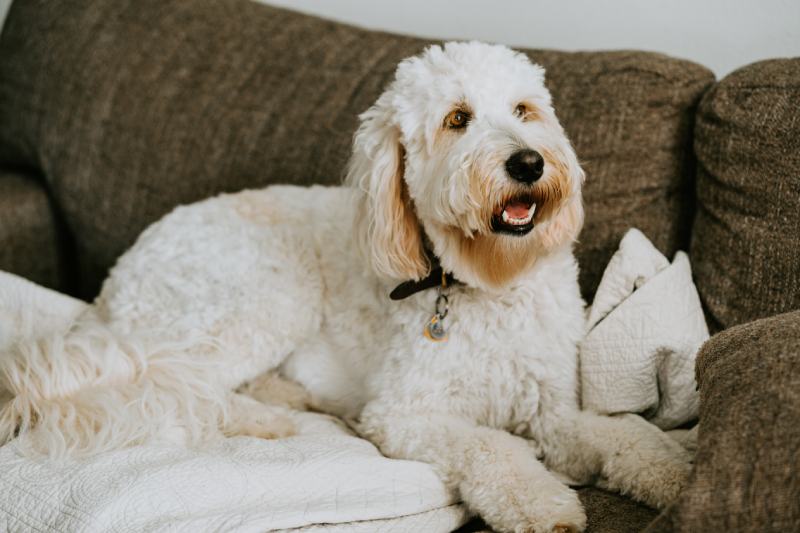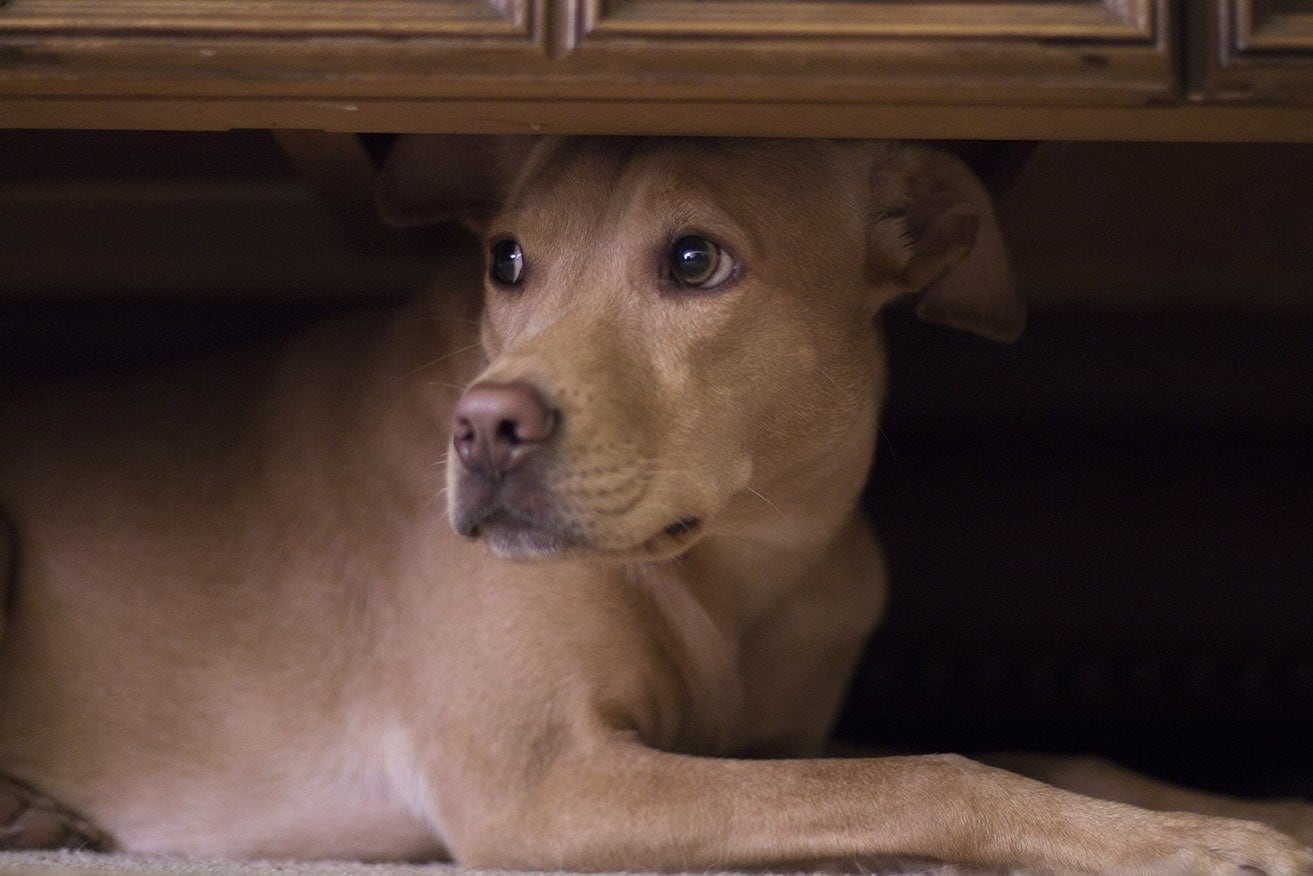Can Goldendoodles Be Left Alone? Facts & FAQ
Updated on

Click to Skip Ahead
Have you just started a job that keeps you away from the house for most of the day? If so, you must have to leave your Goldendoodle back at home alone for many hours. Although your furry friend doesn’t usually react poorly to being alone, is it safe for you to leave them like this?
Fortunately, a Goldendoodle is a unique breed. These dogs are very adaptable and can survive happily when left alone. That’s quite contrary to the common dog breeds, which can get depressed and anxious with prolonged human absence. However, we still don’t recommend leaving them alone for more than 6 hours at a time, as all dogs are prone to separation anxiety.
Can You Leave Your Goldendoodle at Home?
A Goldendoodle is a social dog with exceptional traits. They make excellent family dogs, even for first-time owners. They require little maintenance and are pretty laid back when it comes to their demands.
A Goldendoodle also doesn’t shy away from adapting to its owner’s lifestyle. They are also easily trainable, meaning you can help your dog adapt to being at home alone for several hours without getting anxious.

How to Know If Your Dog Can Stay Alone for Hours?
Your Goldendoodle pup may quickly feel lonely without any warning or hints. But when you prepare them for the worst, they take every challenge positively.
Leaving your dog alone might be easy if they don’t feel bored easily and are not very curious. But if they take longer to adjust independently in a room or have slightly destructive behavior, you may have to train them properly before leaving them alone.
Age is also an imperative factor to consider. If you have a Goldendoodle puppy, you may find it challenging to leave them alone. This is because they have many needs that must be met as soon as possible. For instance, Goldendoodle puppies may develop separation anxiety, leading to consistent barking and destructive behavior. They also have small bladders, and due to their age, they might not be toilet trained. In that case, leaving them at home without supervision may cause a disaster.
Similarly, older Goldendoodles might be too weak to leave on their own. Their existing health conditions may require you to look after them all day. So, in that case, it may not be feasible to leave them without human care.
A young or middle-aged Goldendoodle may not disappoint you. As they are more adaptive and require minimum care, you can easily leave them alone. But ensure that they are well-trained and your home is safe.
Training Your Goldendoodle
Do you want your dog to feel relaxed and at home while you are out for hours? If yes, train them well.
Your dog doesn’t deserve to feel afraid, anxious, or destructive in your absence, so make sure they are prepared for and familiar with this situation. Here are some tips you can follow to make your dog independent:
- Start With Short Sessions: Start training gradually instead of leaving your dog alone for long hours without warning. You can leave them for 1 hour and then increase the number of minutes daily. A gradual increase in time can help them adapt to this situation efficiently, and they don’t rush to meet your expectations.
- Train Them to Play Independently: Chew toys and soft puzzles are the best tools to keep your pet busy. Ensure that your dog can play with them alone, without your assistance. Familiarize your dog with the basics of these toys so they know how to handle and use them in your absence.
- Drain Your Dog’s Energy: Instead of hyping your dog before leaving, try to drain its energy. This helps make them feel tired and sleepy before you leave the house.
- Train Your Dog Indoors: Ensure you don’t leave your pup outdoors alone. Train and leave them inside your house to be safe from all the external elements.

Preparing Your Home for Your Dog’s Alone Time
Whether your Goldendoodle is trained or not, you can’t leave them alone in an unsafe environment. This can be risky even if your dog can stay on their own for hours. Here are some ways to make your house a comfortable space for the dog:
- Make your dog comfortable by giving them free access to water and food. Set these things close to the toilet area, so the pup can relieve as required.
- Ensure that the house’s ambiance is soothing and calm. You can invest in soft lights to make your dog feel relaxed. Avoid switching off the lights before leaving, as it can trigger or scare your dog.
- Keep your home safe so your dog can move around without destroying anything. For instance, remove the trash, and relocate the furniture so it doesn’t come in your dog’s way. The house’s temperature should be normal, not extreme, to make your pup feel comfortable to lie down and rest.
- You may want to play soft music on the radio or turn up your Spotify playlist. This way, the dog may feel someone’s presence in the house.
- Play white noise to make your Goldendoodle feel sleepy and calm.
- For your comfort, install a camera to look after your furry friend while you are at work. This can help you understand what your Goldendoodle does without you. Plus, you can evaluate the changes you can make to the environment to make it more adaptable for your pup.
Conclusion
If you love your Goldendoodle, leaving them alone can be a nightmare. However, sometimes, it is impossible to keep the dog with you everywhere. So instead of whining about the situation, it’s wise to train your pup to be on their own and behave well in your absence.
Simultaneously, prepare a safe and healthy environment for your dog to feel comfortable without you. Moreover, ensure that your house is safe for the pet to move around. You can also place your dog’s food and water in an accessible spot, making it easy for them to consume.
Don’t stress; instead, work toward making your pet happy and confident without you.
Featured Image Credit: Andrea DiSavino, Shutterstock












